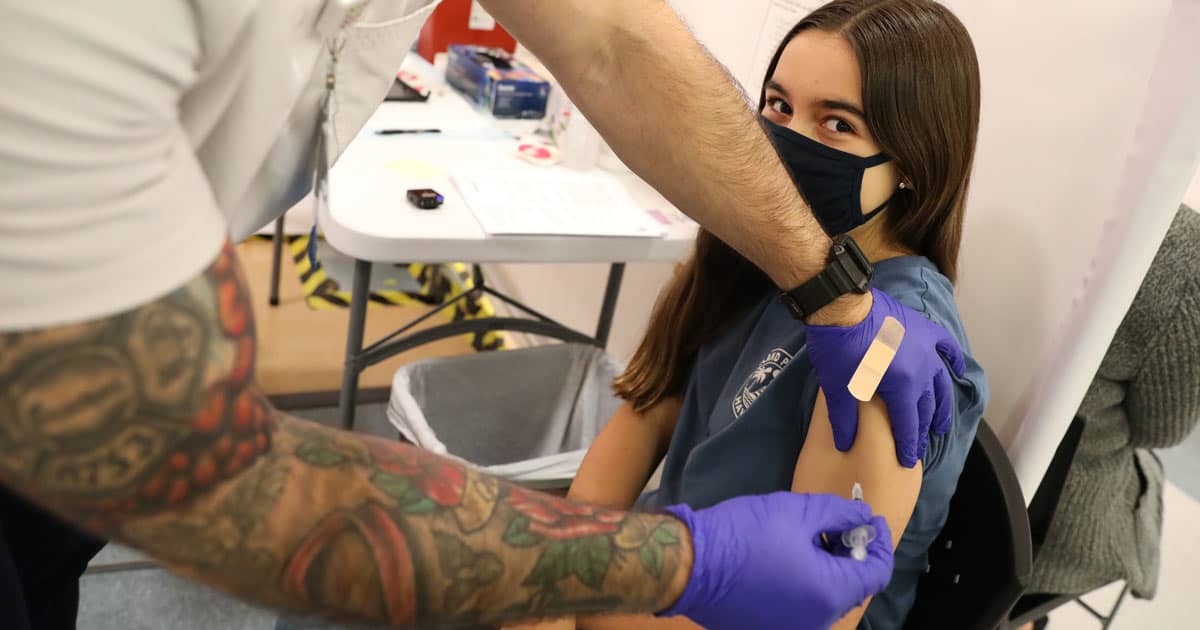A major new study has confirmed that Covid “vaccines” act as a “trigger” for autoimmune hepatitis (AIH) – a lifelong liver disease.
The study was conducted by leading scientists at The Second Hospital of Jilin University in China.
The peer-reviewed study led by Drs. Chaojie Yu, Wenrui Wang, Qian Zhang, and Zhenjing Jin.
The results were published in the renowned journal Frontiers in Immunology.
The researchers found that Covid “vaccines” act as triggers for autoimmune hepatitis (AIH) through immune overstimulation, molecular mimicry, and other immune-modulating mechanisms.
While AIH patients were initially assumed to be at greater risk for severe COVID-19 outcomes due to immunosuppressive therapy, the study questions this assumption by evaluating clinical evidence.
Additionally, it examines whether Covid vaccination is merely associated with AIH onset or if it actively contributes to autoimmunity development.
The study synthesizes findings from multiple retrospective and observational studies on AIH patients.
The scientists analyzed cases involving patients with COVID-19 and those who suffered AIH post-vaccination.
The authors evaluated the immune mechanisms linking SARS-CoV-2 to liver dysfunction, assessed vaccine-induced immune dysregulation, and reviewed genetic markers (such as cytokine SNPs and HLA polymorphisms) potentially predisposing individuals to AIH.
Data from registries, case reports, and genetic association studies are critically examined to detect patterns of autoimmune activation following COVID-19 exposure.
The authors break down the outcomes into categories including
- AIH and COVID-19 Risk
- SARS-CoV-2 as an autoimmune trigger
- COVID-19 vaccination and AIH
- Genetic susceptibility
- Immunosuppressive Therapy and AIH Management
What follows is a summary of each finding by category:
AIH and COVID-19 Risk
Contrary to initial assumptions, AIH patients do not appear to have a significantly higher risk of severe COVID-19 compared to the general population.
Several cohort studies in Italy and Belgium found similar infection rates and outcomes between AIH patients and controls.
This challenges the theoretical concern that immunosuppressive therapy worsens COVID-19 prognosis.
Interestingly, some evidence suggests immunosuppression might mitigate severe inflammatory responses, reducing cytokine storm risk.
SARS-CoV-2 as an Autoimmune Trigger
SARS-CoV-2 infection has been implicated in triggering autoimmune diseases, including AIH.
The virus appears to promote autoimmunity through excessive immune activation, molecular mimicry, and epitope spreading.
However, there is no direct evidence that SARS-CoV-2 infection alone can induce AIH, suggesting that additional genetic or environmental factors may be required for disease onset.
COVID-19 Vaccination and AIH
Numerous case reports document new-onset AIH following COVID-19 vaccination.
mRNA and viral vector vaccines, particularly Pfizer-BioNTech and AstraZeneca, are most commonly implicated.
Reported cases feature elevated liver enzymes, autoantibody positivity, and liver biopsies consistent with AIH.
The proposed mechanisms include molecular mimicry, bystander activation, and prolonged antigenic stimulation.
However, inconsistencies—such as normal IgG levels in some cases and atypical histological patterns—suggest that some cases may represent vaccine-induced liver injury rather than true AIH.
Genetic Susceptibility and Autoimmunity
The study highlights genetic predisposition as a key factor in COVID-19-related AIH.
Certain cytokine polymorphisms, such as IL-6 rs1800795 and TNF-α G-308 A, are linked to both AIH susceptibility and severe COVID-19.
Additionally, specific HLA alleles (e.g., HLA-DRB1*03) may increase the likelihood of vaccine-induced AIH.
These genetic findings support the idea that AIH after vaccination is not random but may reflect an underlying predisposition to autoimmune dysregulation.
Immunosuppressive Therapy and AIH Management
Despite concerns, immunosuppressive therapy does not appear to increase COVID-19 severity.
Studies show that reducing or discontinuing immunosuppressants may actually worsen AIH without clear benefits for COVID-19 outcomes.
Additionally, mycophenolate mofetil (MMF) is identified as a potential modulator of vaccine response, lowering post-vaccination antibody titers.
This suggests that AIH patients might require modified vaccine protocols, such as booster doses or temporary MMF discontinuation.
In conclusion, the study confirms that Covid “vaccines” act as a “trigger” for AIH in patients.
This study provides valuable insights into the emerging link between Covid vaccines and AIH.
The findings also refute previous evidence suggesting SARS-CoV-2 infection is linked to AIH.
The study comes as questions continue to emerge regarding the origins of COVID-19 and the “vaccines” that were developed to supposedly tackle the virus.
As Slay News reported, a leading scientist from China’s Wuhan Institute of Virology has spoken out to blow the whistle by claiming that the U.S. taxpayer-funded Chinese lab “engineered” COVID-19 as a “bioweapon” to reduce the population of humans around the world.
It comes as damning evidence has emerged revealing that the U.S. Agency for International Development (USAID) used taxpayer money to fund the development of COVID-19 as a bioweapon in the same Wuhan laboratory.
As Slay News reported earlier this week, the alarming discovery was revealed by President Donald Trump’s Department of Government Efficiency (DOGE) chief Elon Musk after his watchdog investigated USAID’s spending.
The investigations by DOGE found that tax dollars have been funneled through USAID to the Wuhan Institute of Virology (WIV) in China to develop the COVID-19 virus as a bioweapon.
According to Musk, USAID has also been funding the development of other deadly viruses to be used as bioweapons against the public.
READ MORE – Wuhan Bioweapons Scientist Blows Whistle: Covid Was ‘Engineered’ to Depopulate

Our comment section is restricted to members of the Slay News community only.
To join, create a free account HERE.
If you are already a member, log in HERE.